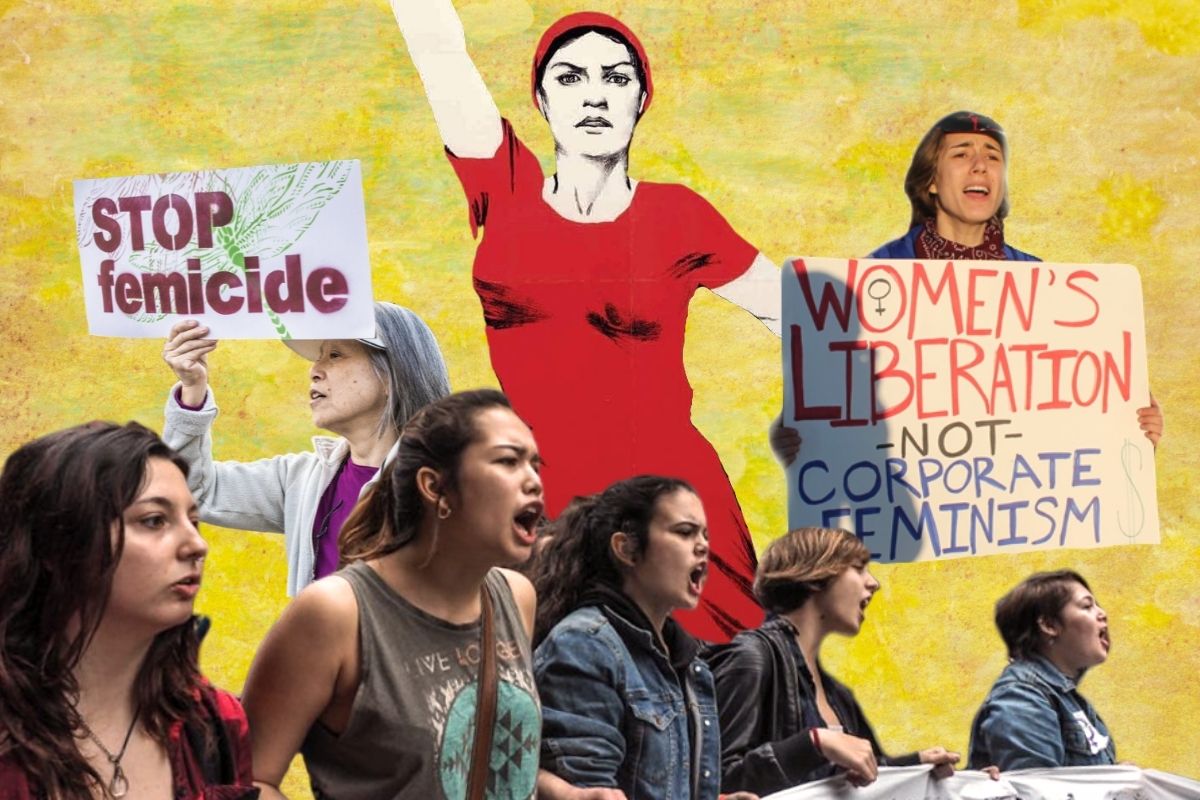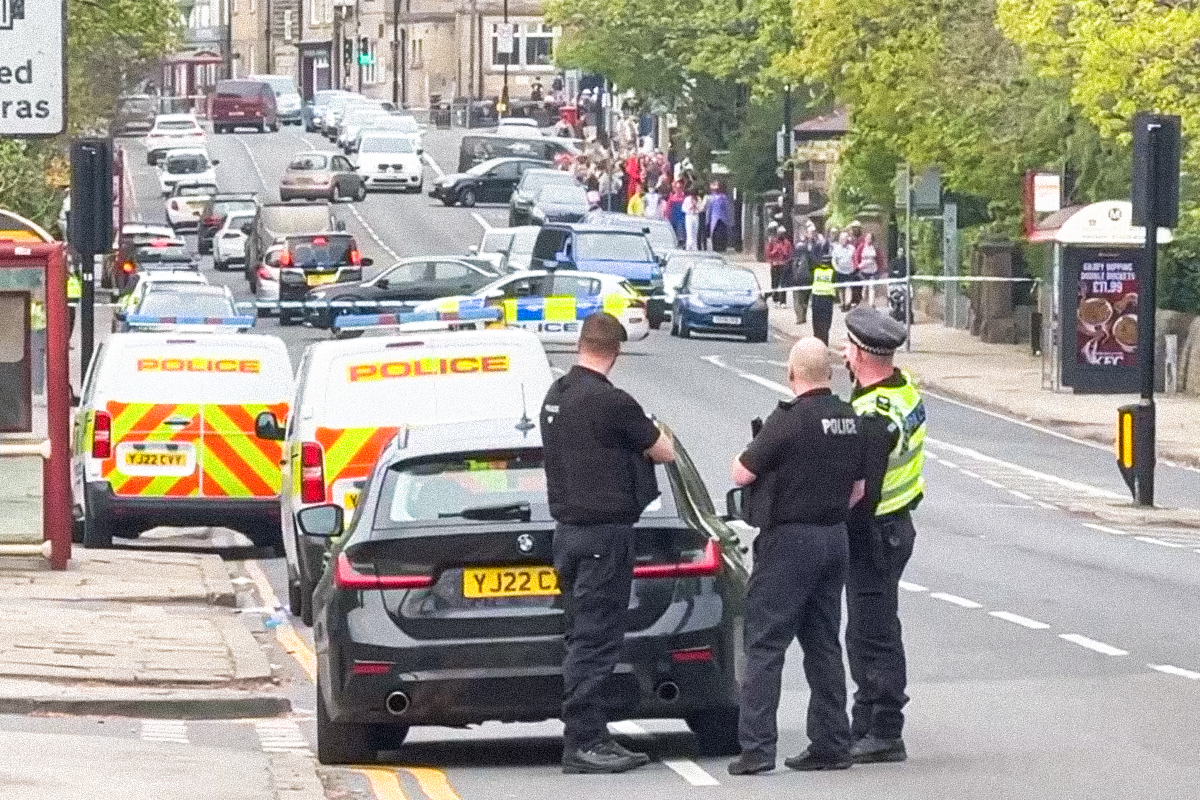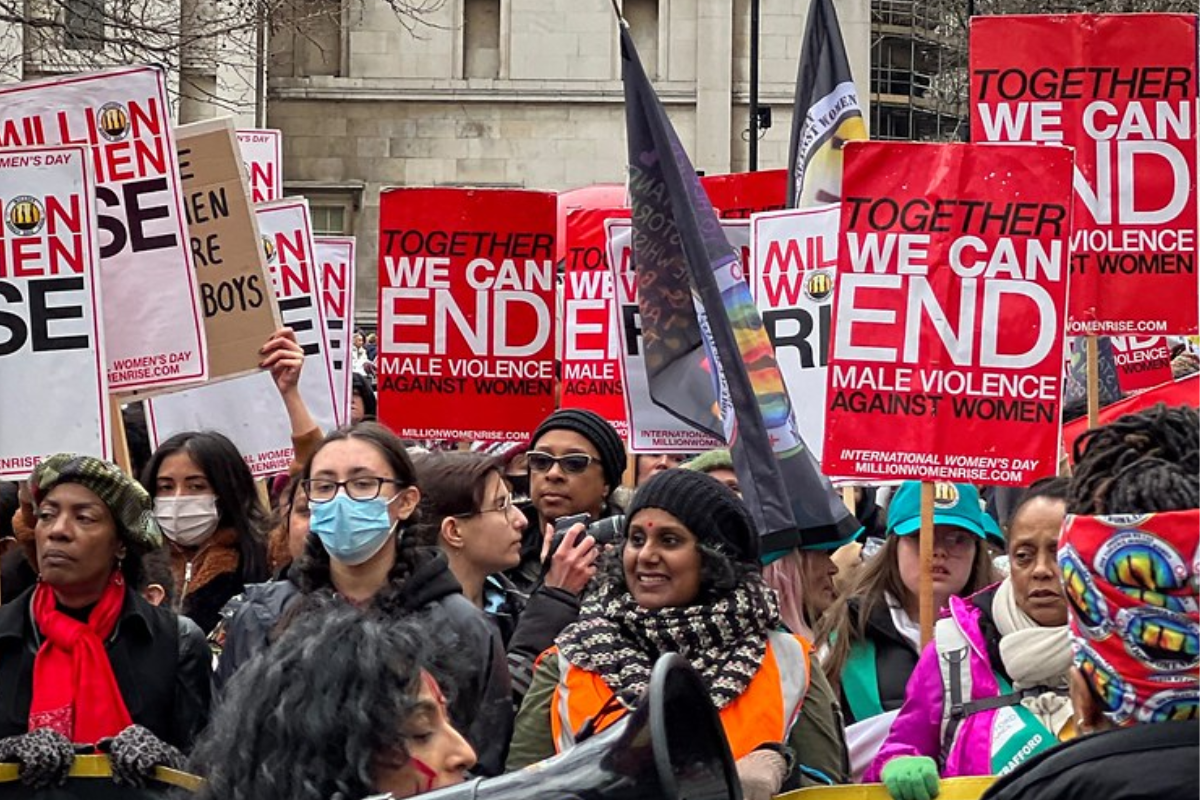Under capitalism, women everywhere are subjected to violence, sexual assault, and often murder.
News during the first COVID lockdown was filled with stories of domestic violence. The French police reported a 30% increase in domestic violence during this time. In Spain, a domestic abuse hotline received 18% more calls in the first two weeks of lockdown than the first two weeks of the month before.
In 2020, 10 women a day were being killed in Mexico. There were 81 femicides in Britain last year between March – when Sarah Everard was brutally murdered – and October. This is nearly three women a week on average.
The website ‘Everyone’s Invited’, has exposed the shocking scale of abuse received by schoolgirls at the hands of their male classmates.
In 2018, the hashtag #ShameOnYouWarwick appeared regarding the revelation of group chats containing a torrent of rape threats towards female students at Warwick University. Similar stories were revealed at Durham University, with male students discussing a freshers’ week competition of who could have sex with the most working-class girls on campus.
A few years ago, the #MeToo movement took off, with women exposing abuse by wealthy men, especially those in the media. Meanwhile, the whole ruling strata of society has been caught up in the disgusting Jeffrey Epstein revelations. Prince Andrew has been accused of raping a 17-year-old on more than one occasion; and Bill Clinton and Donald Trump are also rumoured to be implicated.
Separately, Trump bragged of ‘grabbing women by the pussy’, and Boris Johnson has suggested that men should be responsible for controlling their wives.
The ‘End Violence Against Women’ campaign says that one out of every five women in Britain have faced some kind of sexual violence since they were 16. In reality, this figure is probably a significant underestimate.
One thing is very clear: Women do not feel safe.
Today, we are exposing the severity of rape culture through naming, for the first time, a list of 2962 UK schools mentioned in the testimonies received on Everyone’s Invited. The names of the schools are available on our website as of tonight.https://t.co/YuNRyTFhMg pic.twitter.com/gYhPMNm1YZ
— Everyones Invited (@ei_movement) June 9, 2021
Biology

Without understanding why violence against women exists, there is no possible way to find a solution. Many think the reason violence against women exists is simply because men are naturally stronger and more violent.
This is the position of many radical feminists from the 1960s and 70s. For example, Shulamith Firestone, author of Dialectic of Sex, made the argument that – due to the nature of the female body – women have always been a lower class and that men are genetically ‘erotic’ creatures.
Betty Friedman, similarly, said that: “Men weren’t really the enemy – they were fellow victims suffering from an outmoded masculine mystique that made them feel unnecessarily inadequate when there were no bears to kill.”
What does this argument amount to? That men have always wanted to kill and beat something – and that if it can’t be bears, then it must now be women.
These are the same arguments that reactionary commentator Jordan Peterson uses. Take, for example, his idea of enforced monogamy, without which he says only a small number of men will find women to ‘mate’ with, leading to more violent men. Essentially, Peterson says, if men cannot have sex, then they will rape, beat and murder women.
This argument simply projects today’s relations onto the rest of history. If this system of sexual oppression is innate in the biology of men and women, then it must have existed in every single society. But in fact, the past was not a less developed version of today. It was fundamentally different in many ways.
One anthropological study in 1989, for example, found that the San people of southern Africa were “one of only six societies in the world where domestic violence was almost unheard of”.
So what is different about the San society? It is a tribal society, with no ruling class. It is based on egalitarianism, due to the lack of an economic surplus. If men are genetically determined to be violent towards women then, why weren’t the San men violent?
Another example is the Bison Horn Maria tribe in Central India. VICE magazine reported that there are no sex crimes in the tribe. There are no rules, laws, or stigmas attached to sex. Sex before marriage is encouraged, and rape and violence against women are unheard of. This is in stark contrast to the crisis faced by women in the rest of India. And this is also a society with no class divisions.
In many pre-class (ie. primitive communist) societies, partners and children lived in the women’s gens – their extended family. In fact, men had to ask for approval from the mothers of the women to marry them. This meant they were surrounded day and night by the women’s family.
This, of course, lowers the chance of women being victims of domestic violence. By and large, the conditions of life meant that sexual attacks did not exist en masse.
Property
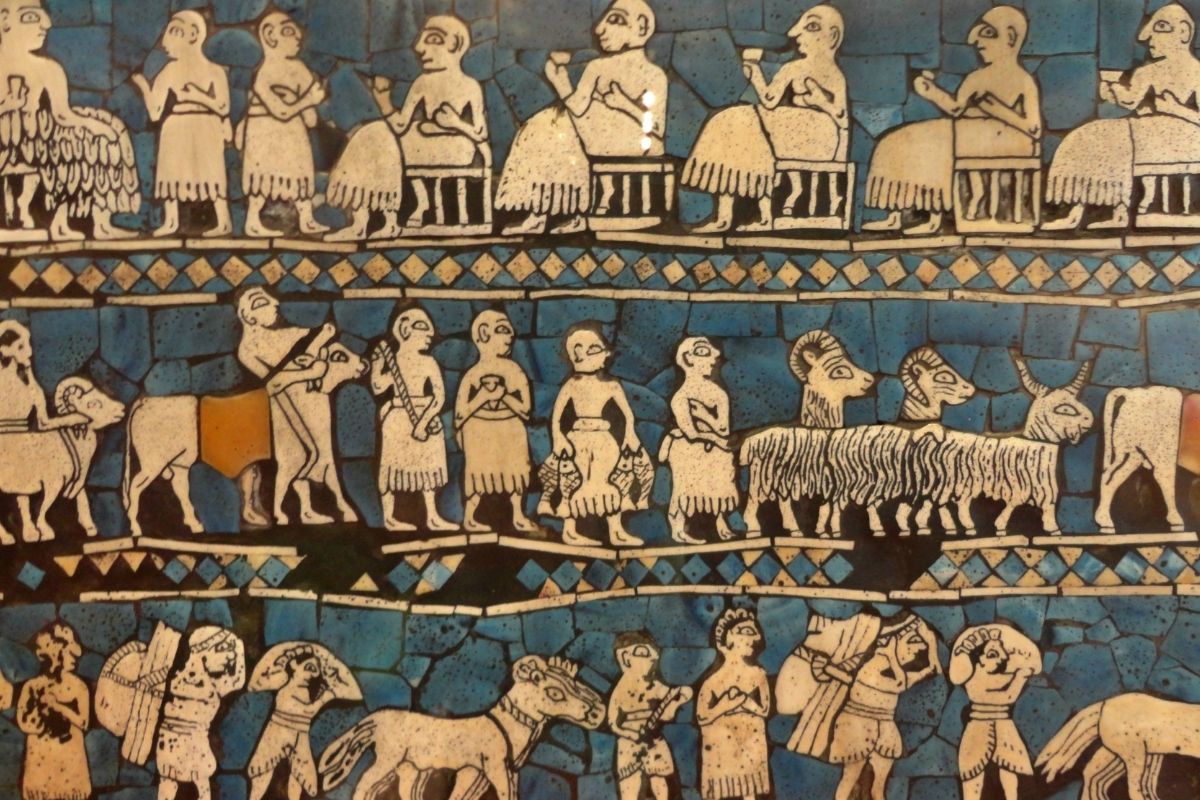
So why did this change?
In Ancient Sumer, laws punished adultery more harshly than rape. In Ancient Greek mythology, Zeus is a sexual predator. For example, he pretends to be Alcmene’s husband, resulting in the birth of Hercules.
Frequently, rape resulted in the payment to a father or husband, sometimes in the form of another, un-raped woman. In Mesopotamia, the penalty for rape was the trading of wives between the rapist and the husband of the woman who had been raped. The crime was not against the woman, but against the man whose property had been damaged.
Why are women the property of men in Ancient Greece, Sumer, and Mesopotamia, but not in the tribal societies which predate this?
In Engels’ The Origins of the Family, Private Property and the State, he draws from the work of anthropologist Lewis Henry Morgan, who showed that the position of women changes fundamentally with the emergence of private property. Private property was from the beginning concentrated in the hands of men, owing to their role in the division of labour.
Suddenly, this created a need for men to pass their private wealth onto their children, which meant they needed to know exactly who their children were; hence strictly enforced monogamy emerged at this time as a means to guarantee the man’s wife gave birth only to children by him.
More than this, Engels says: “The domestic labour of the woman no longer counted beside the acquisition of the necessities of life by the man; the latter was everything, the former an unimportant extra”.
Men’s labour produced private property and economic surpluses, whereas the mainly domestic labour of women produced no such thing. This meant that – in a society now built around private property and the accumulation of wealth – men controlled everything.
The word ‘family’ comes from famulus, meaning ‘domestic slave’. Women are suddenly the domestic slaves of men.
The ruling ideas that emerged reflected and reinforced this material subordination of women. A clear example of this is the creation myth of Christianity, in which Eve is merely a product of Adam’s rib, and is responsible for all of the suffering and sin of humanity.
Police
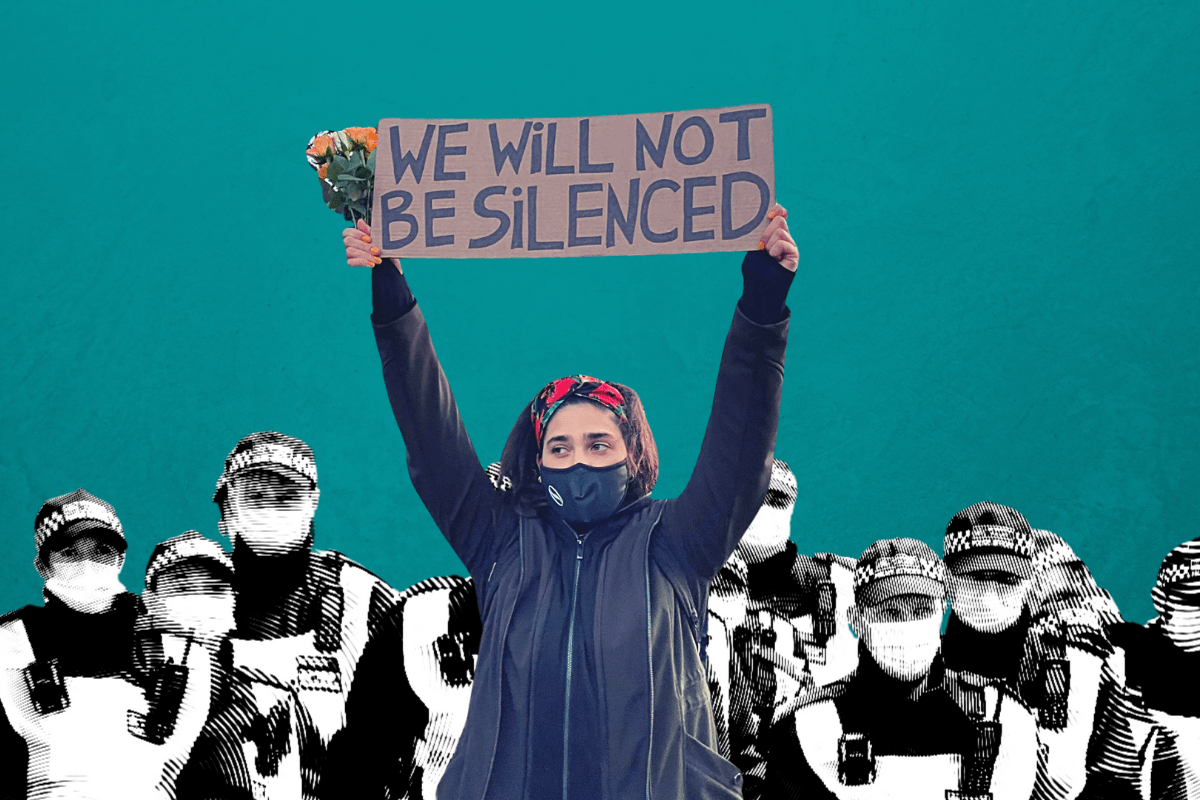
We can still see the effects of this property relationship down to the present. For example, marital rape has only been a crime in Britain since the 1980s. This idea – that it is impossible for a man to rape or assault his wife simply because she is his wife – reflects the belief that a wife is the property of the husband.
In a 2018 study in Britain, 24% of the 4,000 people questioned said that non-consensual sex wasn’t rape if it took place in a long-term relationship. These statistics are only slightly different between men and women.
Unlike the racism of the police, their misogyny has until recently not been widely understood. The murder of Sarah Everard was a vile example of an endemic problem. 15 police officers are known to have murdered women in Britain since 2009.
Spy cops have had relationships with women under false pretences. Mark Kennedy, for example, has been in the news for his relationship with a political activist whilst being a spy cop. Rather than this being just one bad apple, his senior officers were aware of this situation and turned a blind eye – or most likely encouraged it as a means to more effective spying.
Sue Fish, a female officer, reported that when she was in her 20s she was left in the car by a senior officer who went into a house to have sex with a woman he had come across whilst on duty. Clearly he was abusing his power over a vulnerable woman. Sue Fish reported that sex on duty was seen as a ‘perk of the job’. There were 750 allegations of sexual misconduct made against the police between 2016 and 2021.
The armed bodies of men that defend capitalism, that have a monopoly on violence, have effective impunity to commit violent acts. The police are encouraged to hold a disdainful attitude towards the ‘great unwashed’; trained not to keep us safe but to violently hold us down.
Class
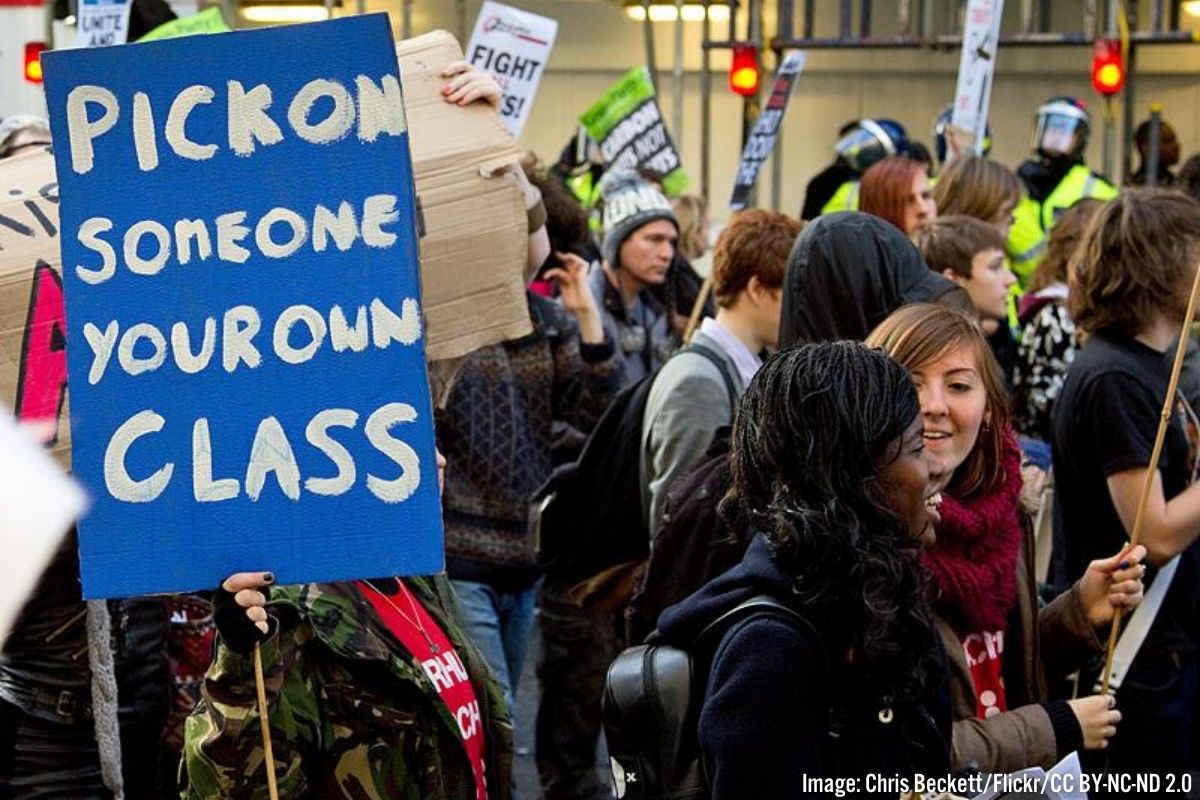
The attitude of the ruling class towards women, especially working class women, is worst of all. It is in private schools where ‘rape culture’ is strongest. A student from St. Paul’s, an elite private boys school in London, gave a horrific report on the situation at the school:
“You would be entirely correct in saying St Paul’s boys’ school is integrally built upon the unadulterated wish for boys to show their sexual prowess through rape and assault. I recall their age old ‘theme tune’ sung at rugby games including the lyrics: ‘I’m St. Paul’s till I die…fuck her sleeping, fuck her dying, if she had wings I’d fuck her flying’.”
This school takes boys as young as seven. They hear this chant at rugby; they listen to the older boys talk; and this is what they look up to.
Another example of this was the 2018 ‘President Club’ charity dinner, where the all-female waiting staff were told to wear ‘skimpy black outfits with matching underwear and high heels’ in order to serve the elite, all-male guest list. These women were also made to hold hands with the guests, pulled onto their laps, and forced to put up with wealthy attendees putting hands up their skirts.
What did the #MeToo movement show, if not exactly this: that rich and wealthy men will use their power and status to commit acts of sexual violence against women.
Working-class men are born, bred, and educated in the same society. They are not immune to its pressures. They are also told that they stand to lose status should women gain more independence from them.
The only ones who benefit from this are the ruling class, which tells one half of the working class that they benefit from capitalism and the oppression of class society; warning that, if there were to be a revolution in gender relations, men would lose this supposed ‘benefit’.
But it is not beneficial for male workers to be able to oppress and abuse working-class women. In fact, this division of male and female workers only helps to keep the working class – both men and women – in subjection to the ruling class.
For example, the lower wages women tend to get do not make male workers privileged. Rather, this division only puts a downward pressure on all workers’ wages, meaning that most families today now require two incomes merely to survive.
Solutions
Lenin said: “We hate, yes hate, everything and will abolish everything which tortures and oppresses the woman.” So how can we abolish these horrors?
In the wake of Sarah Everard and Sabina Nessa’s murders, ideas are being thrown around about how to end this violence. Keir Starmer promises more police on the streets as a solution. But given the police’s complicity in this violence, what would this achieve?
Boris Johnson has suggested we need more female police officers. But this will not help either. Sexual abuse is inherent in an institution that has a monopoly on violence, and which exists to repress the working class.
Lest we forget, as Commissioner of the Met Police, Cressida Dick was directly responsible for the violent treatment of the vigil in memory of Sarah Everard.
In Mexico, women make up over half of Congress, yet femicide runs rife throughout the country. Installing a tiny elite of women at the top of bourgeois institutions is no solution for the mass of ordinary women.
Sadiq Khan says that the government should ‘make misogyny a hate crime’ – as if hate crimes aren’t committed every day; and as if the technical illegality of rape and violence against women stops the problem.
As the crisis of capitalism worsens, so too does the situation for women, who bear the brunt of this crisis. It is well known that austerity hits women hardest. They rely more upon social services; and the removal of these services greatly limits their opportunities if they have children, making them more dependent on men.
As a result many more will stay in abusive relationships because of a lack of money, resources, and professional help. Many single mothers are driven to prostitution to provide for their children.
In Australia in 2018, half of the women asking for rooms in domestic shelters were turned away. Things have only gotten worse since then. In 2012 in the UK, between 275 and 300 women a day were turned away from the first shelter they arrived at, due to a lack of beds.
Revolution
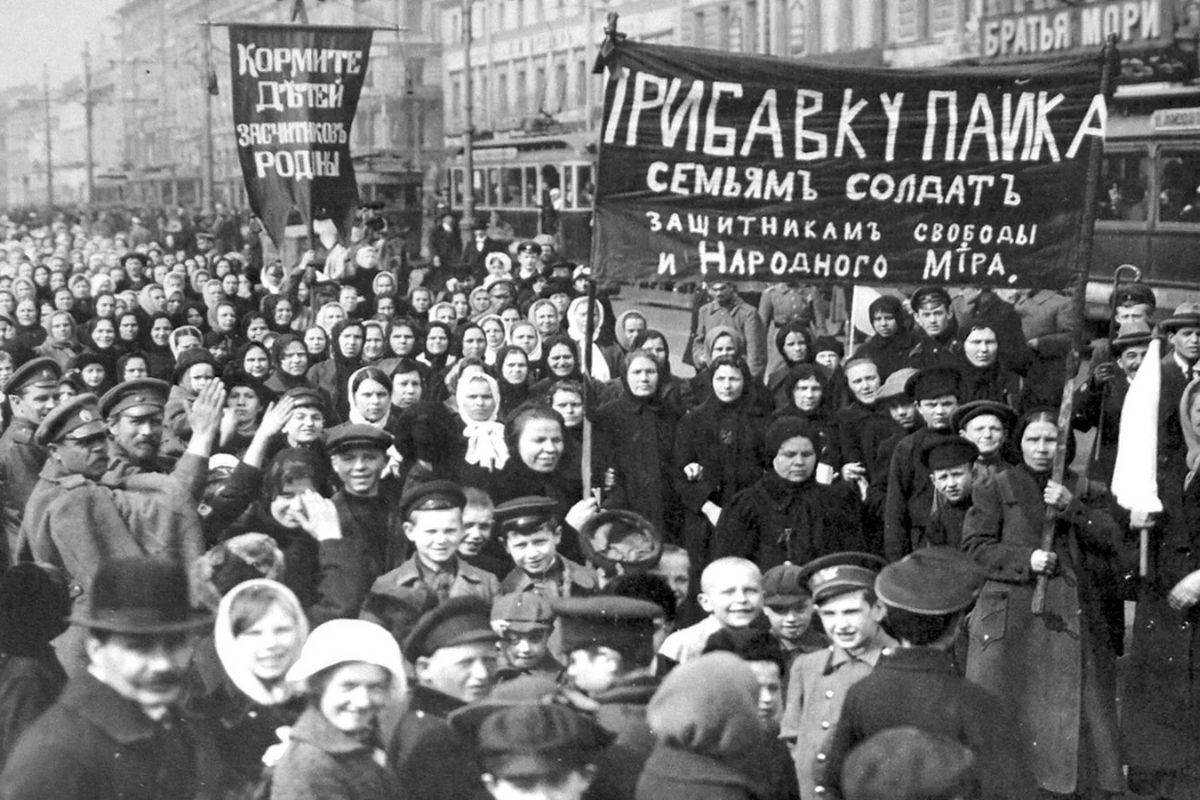
The lack of resources is not a secondary question. Until humanity is freed from want and economic uncertainty, women will never truly be free.
This is the task the Bolsheviks set themselves in the wake of the Russian Revolution. They immediately legalised divorce and made it cheap and simple for any woman to get one. This may seem like a small act, but to have the right to leave your abusive partner without any fines is a real step towards liberation.
Abortion was legalised. Women visited workplaces to check the conditions for women workers there, including treatment by men in work.
These reforms were great leaps forward for the safety of women. But violence against women was not abolished after the Russian Revolution. Why?
The Bolsheviks were building a new society atop the ruins of the impoverished, war-stricken and deeply unequal old one. As Marx said, as long as poverty and scarcity remain, “all the old crap will revive”.
The legal right to abortion is one thing; the actual existence of a high quality health service to put this right into practice is quite another. The right for a woman to leave an abusive partner is very good – but it means little if there is a severe shortage of social housing that such a woman can live in.
The socialised laundries and canteens the Soviets aspired to create could only liberate women from housework if they were built and of a good quality. But impoverished Russia was not in a position to provide these things after the revolution.
Even if material conditions do allow for the provision of such services, misogynistic attitudes will not instantly disappear. Ideologies have a material basis. But they can endure in people’s minds long after the conditions that produced them have died away. Misogynistic ideas have very deep roots in our society indeed.
On the other hand, class struggle and revolutionary waves rapidly transform consciousness and the values that working-class people hold. The unity of working-class men and women in struggle against the capitalist class does more than anything else to dissolve prejudices.
Socialist revolution is therefore the indispensable condition for ending the oppression of women: both because it is the basis for ending class society, poverty, and the scarcity of public services; but also because the process of revolution itself transforms consciousness more than anything else.
Today, there are enough homes in London to house every homeless person and enough food worldwide to feed 10 billion people. We have the economic means to liberate women. But these means lie in the hands of the capitalist class, who have no interest in doing so.
The socialist revolution means wresting control of production from the dead hand of the capitalist class, and placing it in the hands of a class in whose interest it is to free humanity from poverty and inequality.
Only then can inequality, economic uncertainty, and alienation be eliminated. And with it, the basis for tension between men and women will wither away as well.
In these conditions of socialism, we will see the flowering of relationships on the basis of love and choice, rather than economic coercion.
We demand:
- Childcare and creches that are free at the point of access.
- Fully-funded women’s shelters and housing for all.
- A genuine living wage for all, with no discrimination. Equal pay for equal work.
- A reduction in the working week, without any loss of pay, to allow for a balance of work and family life.
- A fully-funded, publicly-owned NHS and mental health services.

